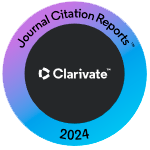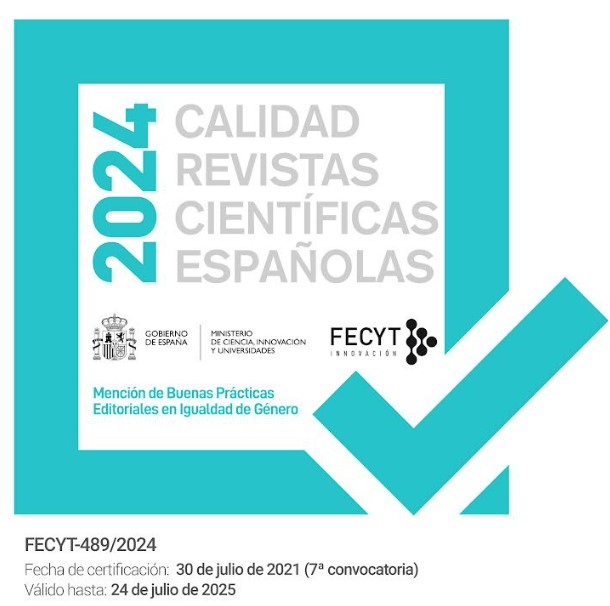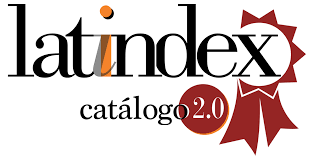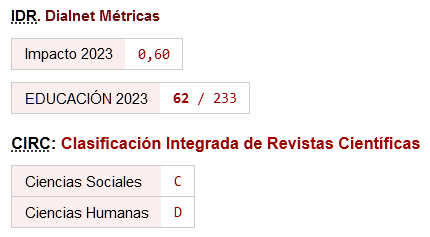COVID-19 and online learning in higher education. A case study of students from Portalegre and Beja Polytechnic Institutes
DOI:
https://doi.org/10.46661/ijeri.5253Keywords:
Covid-19, online learning, higher educationAbstract
Since the early spring of 2020, Portuguese higher education institutions, as well as other education institutions around the world, have been experiencing an unprecedented massive “migration” from traditional in‐class face‐to‐face education to online education. The massive changing models of teaching and learning brings out different perceptions from various parties. There are some advantages and disadvantages in this kind of learning model. The purpose of this study is to investigate the learners’ perception on online learning in a scenario of a COVID-19 pandemic. The subject of this research are students of two Portuguese Polytechnic Institutes (Portalegre and Beja) The instrument used is an online survey questionnaire, anonymous and voluntary, sent to undergraduate engineering students of the two institutions. This study not only report that online learning is good during COVID-19 pandemic, but also spotted the light on the availability of internet access and computers or cell phones. The main conclusions show that the impact was manly negative from the learners’ perception perspective, having mostly referred the workload and also the difficulty in clarifying doubts in time as major factors that had a very negative influence on their academic performance. Also, the social distancing from colleagues was mentioned as a negative aspect. Finally, most respondents expressed a clear preference for face-to-face education for the next academic year.
Downloads
References
Almeida, L.; Vasconcelos, R. (2008). Ensino superior em Portugal: Décadas de profundas exigências e transformações. Innovacíon Educativa, 18, 23-24.
Almeida, L., Araújo, C., Amaral, A. & Dias, D. (2012). Democratização do acesso e do sucesso no Ensino Superior: Uma reflexão a partir das realidades de Portugal e do Brasil. Avaliação, 17 (3), 899-920.
Allo, M. (2020). Is the online learning good in the midst of Covid-19 Pandemic? The case of EFL learners. Journal Sinestesia, 10 (1), 1-10.
Bączek, M., Zagańczyk-Bączek, M., Szpringer, M, Jaroszyński, A. & Wozakowska-Kapłon, B. (2020). Students’ perception of online learning during the COVID-19 pandemic: a survey study of Polish medical students. https://doi.org/10.21203/rs.3.rs-41178/v1.
Bandura, A. (1996). Social foundations of thought and action: A social cognitive theory. Englewood Cliffs, NJ: Prentice Hall.
Dede, C.; Ketelhut, D.; Whithouse, P.; Breit, L. & Mc Closkey, E. (2008). A research agenda for online teacher professional development. Journal of Teacher Education, 60(1), 8–19. doi:10.1177/0022487108327554
Dhanarajan, G. (2001). Online learning a social good or another social divide? Proceedings of The Commonwealth of Learning, International Conference on Learning and Teaching Online. 10th January 2001, Guangzhou, China.
Grow, G. (1996). Teaching learners to be self-directed: A stage approach. Adult Education Quarterly, 41(3), 125-149.
Kruse, K. (2001). The benefits and drawbacks of e-learning <. Retrieved from: http://www.elearningguru.com/articles/art1_3.htm
Lawler, P.; King, P. (2000). Planning for effective faculty development: Using adult learning strategies. Malabar, FL: Krieger.
Laurillard, D. (2002). Rethinking University Teaching: a framework for the effective use of educational technology. (2nd edition) London.
Leite, C.; Ramos, K. (2014). Políticas do Ensino Superior em Portugal na fase pós-Bolonha: implicações no desenvolvimento do currículo e das exigências ao exercício docente. Revista Lusófona de Educação, 28, 73-89.
Lin, C. & Davidson, G. (1995). Effects of linking structure and cognitive style on students’ performance and attitude in a computer-based hypertext environment. Paper presented at the National Convention of the Association for Educational Communications and Technology, Nashville, TN.
Morgan, K; Cooper, A. & Toole, T. (2002). Online learning must address the needs of students. Western Mail (13th March 2002), p.13.
Navarro, P. & Shoemaker, J. (1999). The power of cyberlearning: An empirical test. Journal of Computing in Higher Education, 11(1), 29-57. doi.org/10.1007/BF029408414-8ecf-d0041cedb26
Palloff, R. & Pratt, K. (1999). Building learning communities in cyberspace: Effective strategies for the online classroom. San Francisco.CA: Jossey-Bas.
Self-Directed Learning: A Four-Step Process. Centre for Teaching Excellence, University of Waterloo. Retrieved from: https://uwaterloo.ca/centre-for-teaching-excellence/teaching-resources/teaching-tips/tips-students/self-directed-learning/self-directed-learning-four-step-process
Sin, C. (2015). Teaching and learning: a journey from the margins to the core in European higher education policy. In A. Curaj, L. Matei, R. Pricopie, J. Salmi & Peter Scott (Eds.), The European Higher Education Area: Between Critical Reflections and Future Policies (pp. 333-350). Springer.
Standards and Guidelines for Quality Assurance in the European Higher Education Area (ESG) (2015). Brussels, Belgium.
Ramos, A., Delgado, F., Afonso, P., Cruchinho, A. Pereira, P., Sapeta, P. & Ramos, G. (2013). Implementação de novas práticas pedagógicas no ensino superior. Revista Portuguesa de Educação, 26 (1), 115-141.
Reeve, J. (2006). Teachers as Facilitators: What Autonomy‐Supportive Teachers Do and Why Their Students Benefit. Retrieved from: https://www.researchgate.net/publication/249134478_Teachers_as_Facilitators_What_AutonomySupportive_Teachers_Do_and_Why_Their_Students_Benefit
Rowntree, D. (1994). Preparing materials for open, distance and flexible learning: an action guide for teachers and trainers. London: Kogan Page.
Smith, B. & Mac Gregor, J. What is Collaborative Learning? Retrieved from: https://ucarecdn.com/0f543508-7516-42e
Sujo, L.; Gonzales, C. (2000). Been there, done that: Teaching teachers through distance education. Journal of Technology and Teacher Education, 8(4), 351-371.
Valian, E. & Emami, H. (2013). Online Education: definition and advantages in adult education. Life Science Journal, 10(6), 27-39.
Downloads
Published
How to Cite
Issue
Section
License
Copyright (c) 2020 Maria Isabel de Borges

This work is licensed under a Creative Commons Attribution-NonCommercial-NoDerivatives 4.0 International License.












